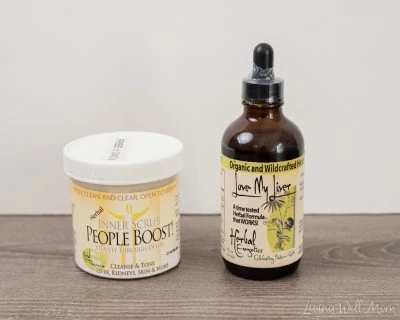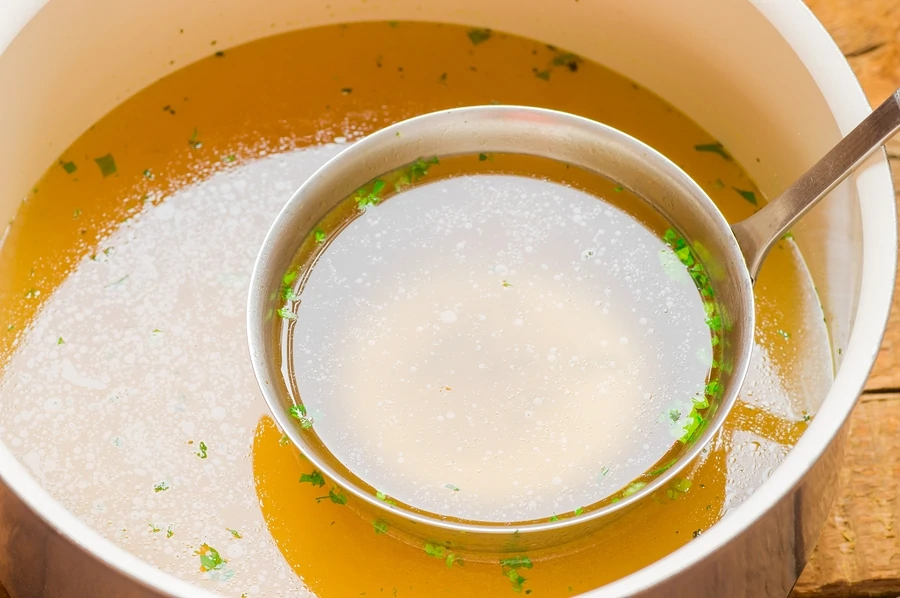I used to wonder why I would get sick again and again after I had to take a course of antibiotics. I’d also experience stomach issues, yeast and other uncomfortable symtoms.
I eventually learn that this is because antibiotics can kill all the bacteria in your body, not just the “bad” ones. This is why digestive issues are a common side effect of taking antibiotics; the delicate bacterial balance in your intestines is upset.
Studies have closely linked gut bacteria to good immune function.
“A huge proportion of your immune system is actually in your GI tract,” says Dan Peterson, assistant professor of pathology at the Johns Hopkins University School of Medicine. “The immune system is inside your body, and the bacteria are outside your body.” And yet they interact. For example, certain cells in the lining of the gut spend their lives excreting massive quantities of antibodies into the gut. “That’s what we’re trying to understand—what are the types of antibodies being made, and how is the body trying to control the interaction between ourselves and bacteria on the outside?” – Hopkins Medicine
Keeping a delicate balance in the immune system by eliminating invading pathogens, while still maintaining self-tolerance to avoid autoimmunity, is critical for the body’s health. The gut microbiota that resides in the gastrointestinal tract provides essential health benefits to its host, particularly by regulating immune homeostasis. Moreover, it has recently become obvious that alterations of these gut microbial communities can cause immune dysregulation, leading to autoimmune disorders. – NCBI
Of course, we take antibiotics for a good reason if our doctor prescribes them. But I’ve learned that there are some simple natural things I can do to support my gut and help reduce those potential issues.
How to Support Your Gut After Antibiotics:
1. Take probiotics while taking antibiotics.
At first, this may not make sense because probiotics are bacteria for your gut and wouldn’t it make sense for the antibiotics to destroy it? Studies have shown that taking probiotics along with antibiotics can be effective in both preventing and treating side effects, such as diarrhea. 1 2
One thing to remember: We don’t want to take probiotics and antibiotics at the same time. It’s best to take them at least 2 hours apart. This will give the probiotics a better chance of settling in and not getting killed instantly by the antibiotics.
Last month, I had a nasty case of tonsillitis that was not improving with natural support. My doctor prescribed a 5-day course of antibiotics. I took my antibiotics in the morning and I took two doses of probiotics later in the day – one after lunchtime and the other before bed. I had no digestive issues at all.
This is one of my favorite gut-support tips because it’s so simple to follow and so effective!
2. Take a good strain of probiotics.
And that doesn’t mean a sugar-loaded yogurt. Your best bet is to take a quality probiotic supplement.
Typically I mix it up every few months so I take a variety of probiotics. When I had to take antibiotics recently, I actually began taking two probiotics (iFlora and Pro 50) and it’s worked quite well as I’ve had no digestive issues at all.
I use this brand of probiotics for my kids. It’s a powder and very easy to mix into yogurt, oatmeal, a smoothie, or even milk.
Saccharomyces boulardii (also known as s. boulardii) is one strain of probiotics that can be especially helpful because it’s naturally resistant to antibiotics. This is because s. boulardii is technically a helpful yeast and not a bacteria. Studies have shown s. boulardii is very effective at preventing antibiotic-resistant diarrhea. 3
I take Jarows Formula Saccharomyces Boulardii for this probiotic strain.
3. Cleanse your liver
One of the liver’s jobs is to process toxins. Did you know that stress also puts a strain on your liver? Dealing with illness and the effects of antibiotics can cause a lot of stress for your liver.
I like to take liver-supporting herbs too.
My favorite herbal source, Herbal Energetics, carries two amazing liver support products – a simple herbal tincture called “Love My Liver” and a powder you can add to smoothies, called People Boost Inner Scrub. I use both daily.
I also like to drink dandelion root tea.
4. Prebiotic foods
Prebiotic foods are a fiber that nourishes probiotics. By eating prebiotic foods, you can help support your gut.
Prebiotic foods include garlic, raw dandelion greens, onions, raw leeks, green bananas, raw asparagus, Jerusalem artichoke.

I love to make a simple recipe of slightly cooked chopped carrots, leek, onion, and garlic mixed with tomato paste and a little salt and pepper. I find this delicious and a very easy way to get some prebiotics into my diet.
I’m not a big fan of dandelion greens, but I do sneak a little bit into my green smoothies without it being too noticeable.
5. Bone Broth
Regularly consuming organic, grass-fed bone broth can be incredibly helpful in supporting your gut after antibiotics. Here’s an article that explains the benefits of bone broth: The Healing Power of Bone Broth.
Bone broth is becoming increasingly more available. There are many varieties, some even found in the grocery store with other broths.
Here are some options.
Bonus tip: you can also eat fermented foods. These can include kefir, kombucha, and sauerkraut. Here’s a list of more fermented foods.
Consider following these tips for how to support your gut when you need antibiotics and see what happens.
- NCBI: Prescribing an antibiotic? Pair it with probiotics https://www.ncbi.nlm.nih.gov/pmc/articles/PMC3601687/
- NCBI: Probiotics in the prevention of antibiotic-associated diarrhoea and Clostridium difficile infection
study https://www.ncbi.nlm.nih.gov/pmc/articles/PMC3105609/ - Wiley Online Libary: Review article: yeast as probiotics –Saccharomyces boulardii http://onlinelibrary.wiley.com/doi/10.1111/j.1365-2036.2007.03442.x/full



Andrea Turek says
I just read your article on healing the gut after antibiotics (https://livingwellmom.com/heal-your-gut-after-antibiotics/) but am curious if you can do all this WHILE taking the antibiotics? A GI Map showed candida and at least 1 parasite along with low normal flora so I’d like to get ahead of issues while still getting the affects of the anti-biotics.
Erika says
Yes, you can, Andrea! I share more details in the post. Good luck!
Robb says
Thanks for these tips Erika. I’m currently using Dr Mercola Complete Probiotics and they’re working pretty well!